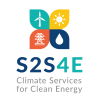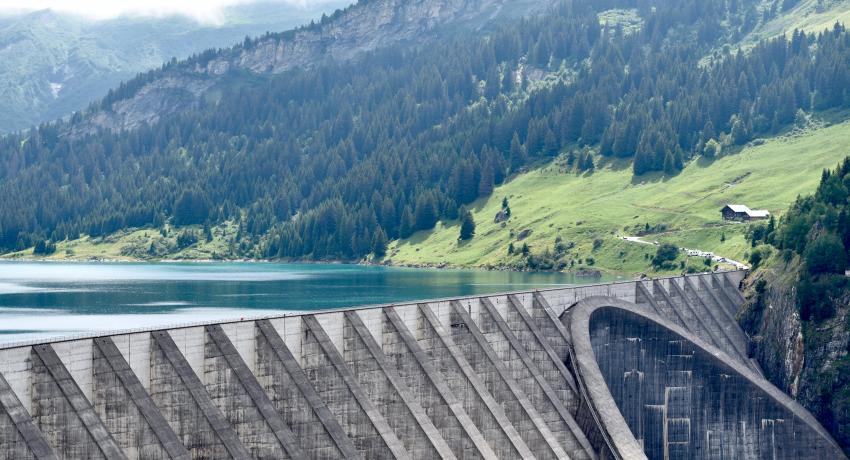Researchers explain the benefits of long-term forecasts for the hydropower sector.
Hydropower production highly depends on weather and climate variables, such as precipitation. In order to effectively manage the water reservoirs throughout the year, hydropower producers rely on the expected conditions over the coming weeks and months.
Laurent Dubus, a former researcher at the French utility company EDF and S2S4E team member, and Ilias Pechlivanidis from the Swedish Meteorological and Hydrological Institute (SMHI) discuss the benefits of long-term forecasts for the hydropower sector.
Bringing climate information to hydropower producers
Hydropower production highly depends on weather and climate variables, such as precipitation. In order to effectively manage the water reservoirs throughout the year, hydropower producers rely on the expected conditions over the coming weeks and months.
Laurent Dubus, a former researcher at the French utility company EDF and S2S4E team member, explains how subseasonal to seasonal forecasts can provide hydropower companies with useful climate information, allowing them to plan their operations and electricity generation. In addition, he discusses how accurate forecasting can help integrate more renewable energy production to the electrical grid, thus reducing emissions from energy production and helping to reach the EU goals. He also comments that bringing relevant and skillful information to the users is one of the main challenges of climate data.
A detailed discussion on the benefits of long-term forecasts for the hydropower and renewables sector can be found in the video below.
Predicting hydrological variables
Snow melting in spring increases the water inflows to the hydropower reservoirs. Long-term forecasts can adequately predict the onset of the spring flood due to snowmelt and are therefore useful for hydropower producers when planning their future production.
In this video, Ilias Pechlivanidis from the Swedish Meteorological and Hydrological Institute (SMHI), who is a member of the S2S4E team, explains why this is the case, and how hydropower producers can benefit from using forecasts for the weeks and months ahead.
Pechlivanidis also explains how climate change is making it even more important for hydropower producers to get early information on when there will be snowpack and when the snow will melt.
Video and text by: Eilif Ursin Reed and Iselin Rønningsbakk / CICERO, and Andria Nicodemou / BSC.


